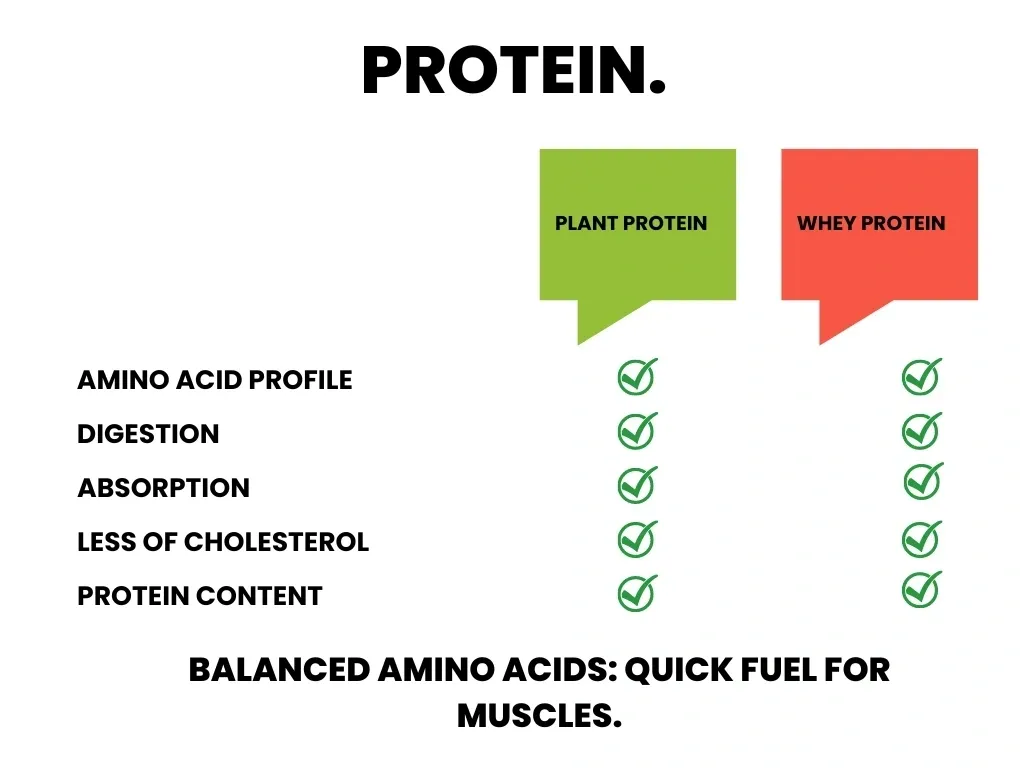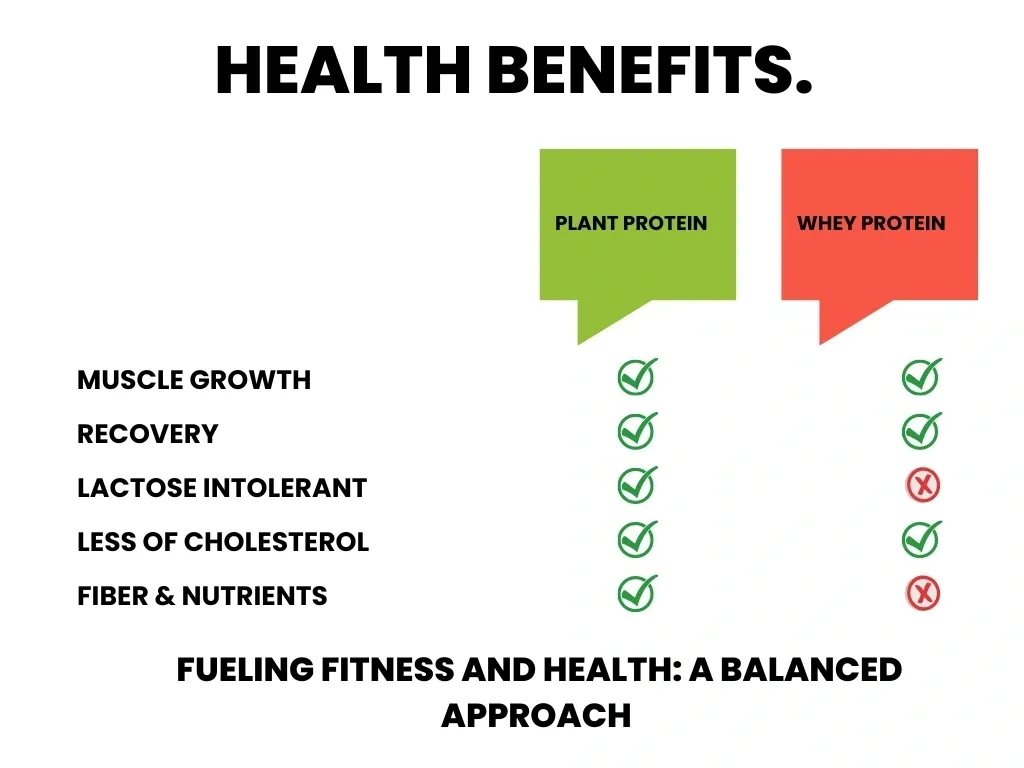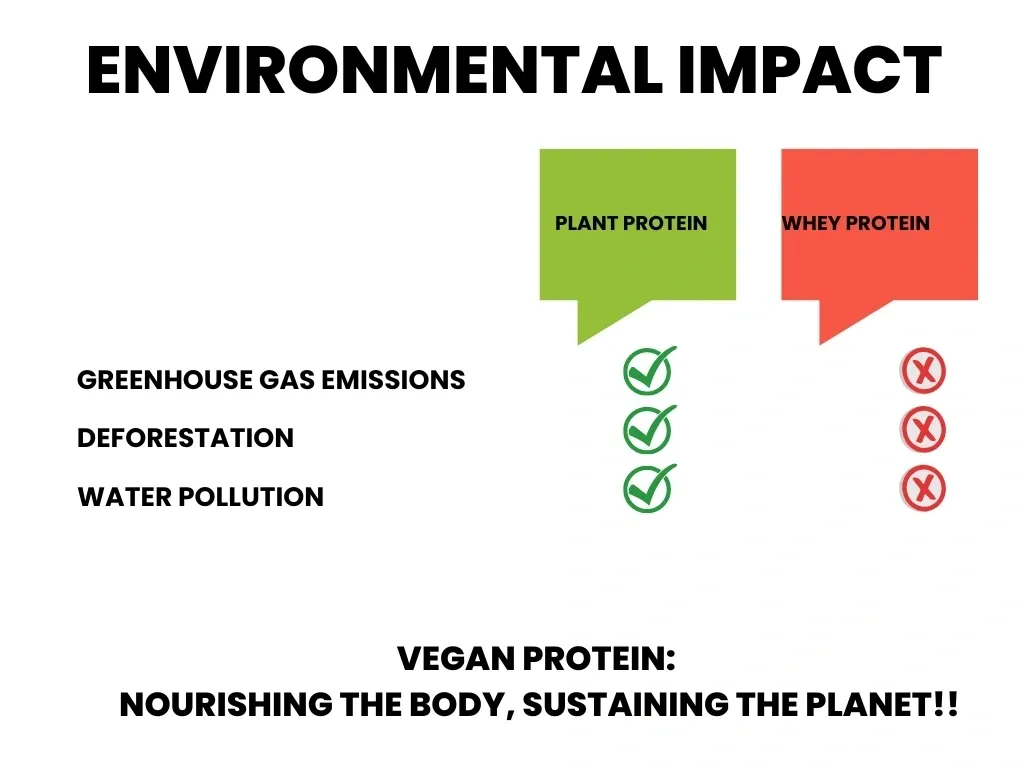- Customer Care +918420344568
Introduction: In the health and fitness world, protein powders have become essential for those seeking optimal nutrition and fitness gains. They are a convenient source of protein, providing essential amino acids for muscle recovery, body repair, and general health. Among the popular types, vegan protein and whey protein stand out as top choices, but they have significant differences.
For those considering plant-based options like Sheer MADness Plant Protein Chocolate from the brand Sheer MADness, it’s helpful to understand how vegan protein compares with whey protein in terms of composition, digestibility, muscle support, and overall health impact. In this article, we’ll dive deep into these differences, exploring the benefits and unique qualities of vegan protein, including Sheer MADness Plant Protein Chocolate—Sheer MADness is India’s only Brand that is completely free of any chemical additives, preservatives, colours or flavours, and stands out as the healthiest choice. No chemicals, no INS codes in small fonts, every Ingredient clearly mentioned on the front Label.

Vegan Protein Powder: Vegan protein powders come from plant sources, which can include peas, rice, hemp, and seed-based proteins such as those from almonds and flaxseeds. These plant proteins provide essential amino acids, fiber, and naturally occurring vitamins and minerals that support overall health. Vegan protein powders are ideal for people following plant-based diets or those with lactose intolerance, and they offer health benefits beyond protein alone. For instance, Sheer MADness Plant Protein Chocolate, a blend of almonds, flaxseed, cocoa powder, and dark chocolate, not only supplies protein but also delivers antioxidants, healthy fats, and fiber—all important for maintaining a balanced diet.
Whey Protein: Whey protein is derived from milk and is particularly high in amino acids such as leucine, isoleucine, and valine, collectively known as branched-chain amino acids (BCAAs), which play a significant role in muscle synthesis and repair. Extracted during the cheese-making process, whey protein has been a popular choice for athletes due to its quick absorption rate, providing a fast influx of amino acids to the muscles post-workout. However, it contains lactose, which can be problematic for individuals with lactose intolerance. Unlike plant-based options, whey lacks fiber and may lead to digestive issues, such as bloating and discomfort, in sensitive individuals.
Protein Content: Both vegan protein and whey protein offer substantial protein content, but the sources and compositions vary. Whey protein is often praised for being a “complete” protein, containing all nine essential amino acids that the body cannot produce on its own. However, many plant-based proteins, such as Sheer MADness Plant Protein Chocolate, are formulated as complete proteins by combining complementary plant sources. Almonds and flaxseeds in this blend ensure a comprehensive amino acid profile that supports muscle growth and repair.
Digestibility: Whey protein is known for its rapid digestibility, making it a favoured post-workout option for quick muscle recovery. However, this speed of digestion can lead to blood sugar fluctuations and isn’t always ideal for sustained energy. Vegan proteins, particularly those rich in fiber like Sheer MADness, tend to digest more slowly, which supports longer-lasting energy and satiety. Almond and flaxseed, key ingredients in Sheer MADness, are known for their gentle impact on the digestive system and reduce bloating, making this blend suitable for those with sensitive stomachs.

Comparison of Protein Quality between Whey and Plant Protein.
1. Plant-Based Nutritional Advantages: Plant proteins provide nutrients beyond just protein. Almonds and flaxseeds, for example, are rich in fiber, vitamins, and antioxidants that combat oxidative stress in the body. In Sheer MADness Plant Protein Chocolate, flaxseed adds an additional benefit by supplying Omega-3 fatty acids, which support brain health, reduce inflammation, and contribute to heart health. These are essential components not present in whey protein, making plant proteins a more nutrient-dense option.
2. Free of Common Allergens: Vegan protein powders are naturally free of common allergens found in dairy, such as lactose, which affects nearly 65% of the global population. Sheer MADness Plant Protein Chocolate’s formulation ensures a lactose-free protein source, making it ideal for those with dairy intolerances. Additionally, the product avoids any chemical additives, colorings, or preservatives, catering to individuals who prefer clean, allergen-free nutrition.
3. Sustainable and Eco-Friendly: Environmental impact is an increasingly important factor for many consumers. Plant-based proteins are generally more sustainable than animal-based proteins, using less water, land, and energy during production. Studies have shown that plant-based diets, including plant proteins, result in significantly lower greenhouse gas emissions compared to diets that rely on animal protein. By choosing vegan options like Sheer MADness Plant Protein Chocolate, consumers support a more sustainable food system and reduce their carbon footprint.

Comparison of Health Benefits between Plant Protein and Whey Protein.
Whey Protein: Whey protein has been celebrated for its complete amino acid profile, particularly its high concentration of BCAAs, which are key for muscle repair and growth. These BCAAs—leucine, isoleucine, and valine—aid in promoting muscle protein synthesis and reducing muscle breakdown after exercise. This makes whey a popular choice for athletes looking to optimize muscle recovery and growth. However, whey’s benefits often come with the downsides of lactose content and potential digestive discomfort.
Vegan Protein: Vegan proteins have historically been viewed as “incomplete” due to some plant sources lacking one or more essential amino acids. However, advances in blending multiple plant sources have allowed vegan proteins to become complete, matching whey’s amino acid profile. For example, Sheer MADness Plant Protein Chocolate combines almonds and flaxseed, which, when paired, provide a complete amino acid profile. Research has shown that consuming a diverse range of plant proteins can yield the same muscle-building benefits as animal proteins when combined in the right proportions.
Sheer MADness Plant Protein Chocolate is a unique vegan protein blend that stands out for its clean, nutritious ingredients. Here’s a closer look at the key components and their benefits:
Key Ingredients:
Advantages of Sheer MADness Plant Protein Chocolate:

Comparison of Environmental impact between Plant Protein and Whey Protein.
Whey Protein: While whey protein is known for its fast digestibility, this can be a double-edged sword. Fast absorption may lead to a rapid insulin spike, which is useful immediately post-workout but not ideal for those looking for steady energy release. Additionally, whey protein contains lactose, which can cause digestive issues such as bloating, gas, and discomfort in individuals with lactose intolerance or dairy sensitivities.
Vegan Protein: Vegan proteins, including Sheer MADness, are gentler on the digestive system because they are free of lactose and contain fiber. The fiber content helps slow down digestion, providing sustained energy release without causing digestive distress. Ingredients like almond and flaxseed in Sheer MADness Plant Protein Chocolate are especially beneficial for gut health, supporting a balanced digestive process and reducing bloating.
Vegan protein powders like Sheer MADness are typically higher in fiber. This is beneficial for promoting satiety and supporting weight management. Fiber helps you feel fuller for longer. It also slows down the release of sugars into the bloodstream, helping to prevent energy crashes. This is an advantage over whey protein, which, due to its rapid digestibility, can leave you feeling hungry sooner after consumption. Studies indicate that fiber-rich plant proteins may be more effective in promoting long-term satiety. This makes them an excellent choice for those managing weight.
Research Findings: Research indicates that plant proteins can effectively support muscle growth when consumed in adequate quantities. In a study published by the Journal of the International Society of Sports Nutrition, researchers found that plant proteins, when formulated to provide all essential amino acids, have a muscle-building effect comparable to that of whey protein. Sheer MADness Plant Protein Chocolate combines almond and flaxseed to provide a balanced amino acid profile, essential for muscle repair and growth. Additionally, the antioxidants in cocoa help reduce inflammation, supporting quicker recovery post-exercise.
Cholesterol: Whey protein, derived from dairy, can increase cholesterol levels in some individuals, which may not be ideal for those concerned with heart health. In contrast, vegan proteins such as Sheer MADness, which includes flaxseed, naturally support heart health through their fiber and Omega-3 content. Studies suggest that diets high in plant proteins can help reduce cholesterol levels and lower blood pressure, contributing to overall cardiovascular health.
Reduced Inflammation: Ingredients like flaxseed are known for their anti-inflammatory properties. For those using protein powder daily, reducing inflammation is critical to avoid muscle soreness, joint pain, and even long-term heart issues. This benefit is another reason vegan protein options are often preferred by health-conscious individuals.
Ultimately, while both vegan protein and whey protein offer valuable health benefits, they differ significantly in nutritional composition, digestibility, and broader health impacts. Vegan proteins, such as Sheer MADness Plant Protein Chocolate, provide a well-rounded option that delivers essential amino acids, fiber, antioxidants, and healthy fats without the potential side effects of lactose or additives found in whey protein. This makes it an ideal choice for those seeking a clean, balanced protein source that supports muscle growth, heart health, and sustainable living.
By choosing a product like Sheer MADness, which emphasizes natural, chemical-free ingredients, consumers can enjoy the benefits of protein supplementation without compromising their health or dietary preferences.
I would also request you to please read my previous post: Plant Protein, Protein Everything you should be aware of.
These are the same lines from my book “Great Health Comes from Exercise & Nutrition”
a) Everyone is an individual, so what suits me, may or may not suit the next person.
b) If a person has a medical condition, a doctor’s advice and prescribed medication will only help.
c) While buying any protein powder from the market read the labels carefully. Also, watch out for various codes, and words like Anti-caking agent, and INS 551( Also known as Silicon dioxide), All these are laboratory-made chemicals, and although approved by regulatory bodies think twice, will you consume a spoon of Silicon dioxide? And Silicon dioxide is just one product, there are numerous others like BHA ( Butylated hydroxyanisole ), BHT ( Butylated hydroxytoluene ) and the list of lab-made chemicals goes on and on with various codes, that we generally ignore.
Hence read the labels especially the ingredients list of the product before buying.
If you are interested in buying chemical-free Natural vegan Protein powder, Health drinks for kids or our delicious but chemical-free Energy bars and Protein bars shop @ Sheer MADness.
d) Exercise is the key to fitness, we should always keep in mind that exercise and nutrition are two sides of the same coin and always go hand in hand. So only nutrition will not help you attain any goals till it is not supplemented with Exercise.
e) Excess of anything is wrong, it can be the best nutrient-filled superfood, but one should consume only recommended quantities.
f) Regarding health, fitness, and nutrition, remember that Rome was not built in a day. Your discipline and consistency is the key.
g) It’s not only Exercise and protein that builds muscles, but there are numerous other factors like a healthy gut, numerous macro and micronutrients, your body type and DNA, the amount of rest the body gets, the lifestyle an individual lives, and on and on it goes. Out of all these, exercise and nutrition are within our control, and one should focus on these two primary aspects.
h) The most important part of fitness is that nothing is better than exercise and a balanced meal.
Disclaimer: Our products are a source of HEALTHY NUTRIENTS and COMPLETELY FREE OF ANY ADDED CHEMICALS.
We do not claim to cure any medical condition.
The content provided is informational. We do not claim to diagnose or treat a person with any specific medical condition.